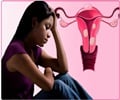Gut microbiota-influenced bowel habits and stress may affect the frequency and intensity of menopausal symptoms.

Exploration of the association between menopausal symptoms, gastrointestinal symptoms, and perceived stress: survey-based analysis
Go to source).
How Gut Microbiome Influence Menopausal Symptoms?
As life expectancies continue to lengthen, the reality is that many women may spend 30% to 40% of their lives in post-menopause. Because up to 80% of women experience some menopause symptoms, chances are good that a woman’s quality of life is going to be affected for some period of time as a result of the menopause transition. For example, the average duration of hot flashes is 7.4 years, although some studies have shown that these symptoms can bother women for as long as 10 years or more. Sex steroids (or the lack of them in the case of menopause) have been shown to affect the female nervous system. Gut microbiota has also been shown to influence the nervous system, especially with regard to how a woman responds to stress. The relationship between sex steroids and gut microbiota is well documented. Not only do gut microbiota play an important role in the metabolism of female sex hormones, but sex hormones influence gut microbiota.‘A link between menopause symptoms with stress, and gastrointestinal issues in midlife women necessitates early preventive measures. #menopause #gutmicrobiome #stress’





Because both sex hormones and gut microbiota change with age, especially during the menopause transition, researchers questioned whether there is a relationship between menopause symptoms, stress, and gastrointestinal issues in midlife women. Severe Menopause Linked to Gastrointestinal Health & Stress
In the first known study to attempt to evaluate this relationship, researchers analyzed data from nearly 700 midlife women. They concluded that stress and some gastrointestinal factors, including frequency of defecation and stool consistency, were associated with menopause symptoms.Specifically, they identified an association between stool consistency and hot flashes. Women with constipation experience more severe menopause symptoms compared with women with normal stool consistency. In addition, other factors, such as physical activity, body mass index, and diagnosis of depression or anxiety disorder were shown to be related to menopause symptoms and their severity.
“This study shows a potential association between bowel habits and menopause symptoms. These findings highlight how the loss of estrogen at the time of menopause can affect multiple body systems and result in myriad symptoms that may be interrelated. The physiologic mechanisms underlying these associations remain unclear and require additional study,” says Dr. Stephanie Faubion, medical director for The Menopause Society.
Reference:
- Exploration of the association between menopausal symptoms, gastrointestinal symptoms, and perceived stress: survey-based analysis - (https://journals.lww.com/menopausejournal/abstract/9900/exploration_of_the_association_between_menopausal.244.aspx)
Source-Eurekalert















